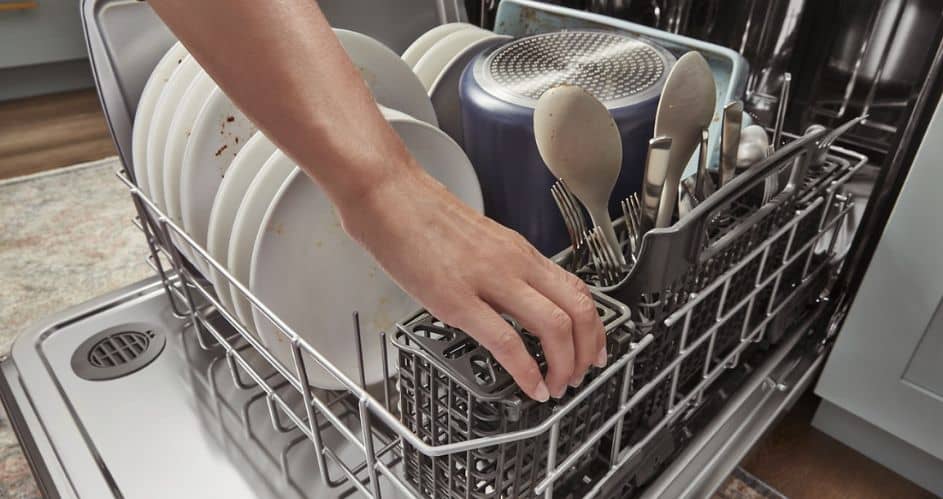
When your dishwasher is on the blink, and you’re missing out on clean dishes each day, the frustration can be almost unbearable. But never fear.
When armed with some basic knowledge of common issues and knowing where to find help when necessary, getting your dishwasher back to its former glory doesn’t have to seem like an impossible task.
In this post, we’ll explain why your dishwasher might not be working as expected and what you can do about it.
You’ll learn about the most frequent causes of a broken dishwasher so you can spot an issue in advance and take appropriate steps to contact Quality Appliance Repair Calgary LTD to fix it before disaster strikes. Read on to find out more.
Common Dishwasher Problems & There Solutions
Clogged Filters
A common issue behind a dishwasher’s failure to work is a clogged filter. This can happen over time as faced pieces of food, soap scum, and other debris build up and block the filter.
Identifying if this is the root of your problem is simple, open the door and take out any removable parts to check whether there is visible debris in and around the filters, especially near the back end of your dishwasher.
If you see any build-up, it’s recommended to clean these areas out with either a cloth or a brush before running a cycle again.
Improper Loading
Your dishwasher might not be running correctly due to an improper loading issue. This can result in dishes not coming out as clean as they should be and parts of the appliance failing to get adequate water coverage.
To ensure your dishes are effectively cleaned, take a few moments to arrange them properly in the dishwasher.
Make sure to keep heavier items on the lower racks and light and fragile items on the upper racks. Additionally, face all dishes inward towards the center for optimal washing performance.
Clogged Drain Hose
The drain hose carries away used water and grease from the appliance after each cycle, so if it’s blocked, used water and food debris have nowhere to go.
To check if this is the issue, look inside your dishwasher for any food debris or check in the sink where it usually connects to see if there’s any blockage.
It’s important to clean out the hose regularly as accumulated dirt and grime builds up over time. If it’s still clogged after checking, you may need to contact a professional technician for assistance to avoid any further damage.
Electrical Issues
Electrical problems often prevent dishwashers from working properly. Without sufficient power, the machine cannot run its cleaning cycle or even respond to button presses and settings adjustments.
Check the power switch first (this could also be located in your fuse box) before moving on to other possibilities. If you have confirmed that your circuit breaker is functioning normally, this may be a sign of an internal wiring fault.
Additionally, if your dishwasher isn’t spinning or won’t fill up with water, you may need to check the common water valve. There could also be a heating element malfunction due to a lack of cleaning or an insufficient amount of detergent being used during cycles.
Leaking
Leaking from any part of a dishwasher is obviously a cause for concern, however, this could be resulting from something as simple as clogged spray arms or as complex as faulty pump seals that need to be replaced.
It’s important to identify the source of the leak in order to take appropriate action and fix the problem. Luckily, leaks can easily be identified via visual cues like wet spots on the bottom of the dishwasher or near plumbing fixtures connected to the unit.
Faulty Motor
If the dishwasher won’t turn on and appears to have no power, you may need to check the motor. Depending on the specific make and model of your appliance, you may have to open it up and check if any wires or connections have come loose.
In some cases, it could be something as simple as a blown fuse; in more serious cases, replacing the motor may be necessary.
As this is a complex repair that usually involves taking apart the washing machine and working with electrical components, it’s best to consult with a professional to avoid inconvenience.
Fixing common problems with dishwashers is definitely not an easy job, but it is possible. Depending on the issue, you may need to call for professional help or actually purchase additional parts for your dishwasher.
Before you take any action, make sure that you have identified the problem correctly and are following all safety precautions during the repair process.
If your issue cannot be fixed through simple troubleshooting techniques, then it may be better to call in a reliable appliance contractor who can help you repair and update your dishwasher quickly and efficiently.
With proper maintenance and top-notch service, your dishwasher will serve you faithfully for many years to come.
